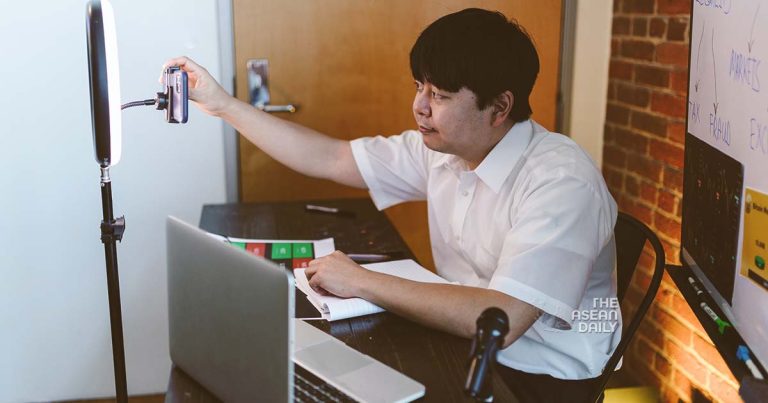8-7-2023 (JAKARTA) A bustling shophouse in Northeast Jakarta has become an unlikely hub for entrepreneurs seeking to strike gold on TikTok.
Inside the shophouse, dozens of salespeople take turns promoting cosmetics, contact lenses and other goods on TikTok Shop, the short-video app’s burgeoning livestreamed marketplace. A woman helps a customer find the perfect shade of lipstick, while a man shouts out the latest price drop on vitamin tablets.
TikTok Shop launched in Indonesia last year and has since grown into TikTok’s fastest-growing feature, attracting a devoted following across Southeast Asia. For TikTok’s Chinese parent company ByteDance, its success in the region is crucial as the company faces a possible US ban over national security concerns. TikTok Shop also provides ByteDance a template to challenge e-commerce giants like Amazon in a way no social media company has tried before.
In June, TikTok chief executive Shou Zi Chew visited Jakarta, promising to invest billions of dollars in Southeast Asia over the next few years. His visit contrasted with his experience in Washington this year, where he faced a grilling from US politicians concerned about Chinese influence over TikTok and the impact of its content on children.
TikTok Shop launched in Indonesia as ByteDance sought to expand TikTok beyond China, where it faces regulatory pressures. Initially pitched as an underground feature for trendy young shoppers, TikTok Shop gathered hundreds of livestreamers to peddle goods like Tupperware and skincare products from their homes. Launched during the Muslim holy month of Ramadan when many were stuck indoors due to Covid-19, it was an instant success.
Operations have since become more sophisticated, with agencies connecting brands to livestreamers and setting up studios. TikTok provides some brands an account manager and influencers to help reach young shoppers. Yet videos retain an improvised feel that shoppers find authentic and engaging.
Top influencer Kohcun, known as Suanto offline, livestreams for six hours a day, selling Samsung phones, Louis Vuitton bags and more. He earns three times more than he did reviewing gadgets on YouTube.
“TikTok has the big advantage using their creators because it’s more entertaining, it’s more natural,” said David Nugroho, CEO of influencer agency DCT Agency.
TikTok now has over 100 million monthly users in Indonesia, who spend over 100 minutes daily on the app. Its algorithms help serve up engaging videos and determine what shoppers may want to buy.
Key TikTok Shop executives are from China, including Bob Kang who oversees TikTok’s e-commerce operations across Asia. Yu Weiqi, an aide to ByteDance co-founder Zhang Yiming, runs TikTok Shop in Southeast Asia.
While many working with TikTok Shop in Indonesia are locals, some Chinese entrepreneurs have brought capital and experience with livestreaming e-commerce to coach Indonesian influencers. Richard Ma, a 31-year-old from Beijing, coaches Indonesian influencers to sell $40 air fryers and $8 Bluetooth earbuds. He buys goods wholesale from Alibaba to ship to Indonesia, replicating what sells well on Douyin, ByteDance’s Chinese TikTok counterpart.
“We can replicate the China model and adapt it to different markets,” he said. Though now losing money, Ma believes with scale TikTok Shop will profit.
TikTok Shop’s success in Indonesia shelters it from a US ban, but Indonesia’s lower spending power means the US remains key. TikTok in November launched US in-app shopping allowing mini-stores linked to influencers. It now plans a full marketplace for consumers to search and compare, setting it apart from US social platforms. It puts TikTok in competition with Amazon on its home turf.
Some question if TikTok Shop can sustain fast growth once marketing and influencer subsidies end. TikTok spends heavily on influencers in Vietnam, but some brands find users don’t always checkout. Samsung has cut Southeast Asia spending after finding this.
Regulation also looms. Indonesia warns against “online begging” for virtual gifts and concerns grow over impulse buys. Vietnam may review if TikTok threatens youth and culture. India banned it in 2020.
Entrepreneurs like Hank Wang see only growth. His firm Flame Media nears $1 million in monthly sales so he’ll move to a swanky Jakarta office and hire 500 more livestreamers this year. “The first thing is to become the No.1 in Indonesia,” Wang said. “Then we can try another region, another continent. It’s one step at a time.”




